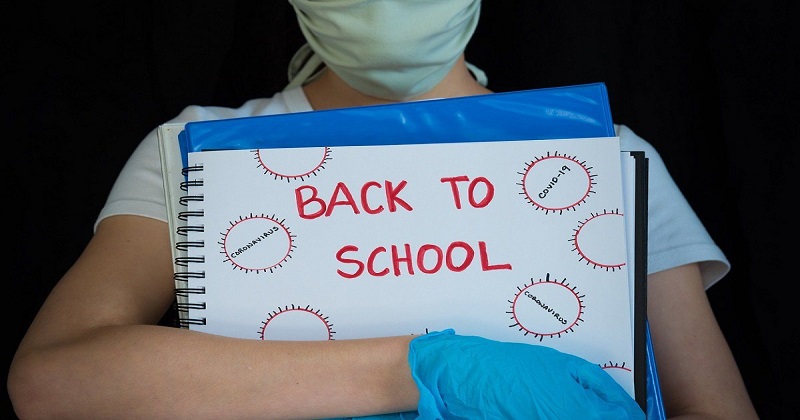
Should children be sent to schools or not? That is the question being asked by parents themselves now as schools in Kerala are going to reopen officially on November 1. But classes will commence only in phases, for instance, Nov 1 for classes 1 to 7 and 10 and 12 and Nov 15 for classes 8, 9, and 11. If children are sent to schools at this juncture, how secure are they from the corona virus infection?
A set of innovative measures has been introduced by the state government ahead of reopening of schools to prevent the spread of the corona virus on the campuses. The most important of them is that the parents can now opt for either online or offline class and students must have parents’ consent to attend classes.
The parents seem confused and a little worried too about sending their wards to schools because the threat of pandemic is still lurking with new cases of Covid being reported and dozens becoming victims of it each day in the state. The parents up the ante against the pandemic as school children are yet to receive vaccine doses.
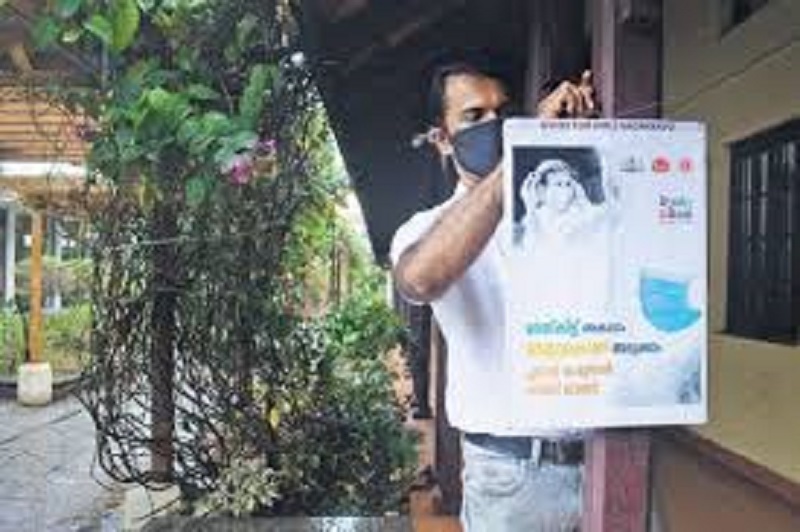
Many parents are of the opinion that children will be safer while in school if they get at least one dose of vaccine. Students have been to online classes for almost two years and why don’t wait till they are vaccinated, remark the parents, whose anxiety and fears are not unwarranted considering the ambience of schools
in general. Even before Covid, school environment as always was a source of communicable diseases among children for various reasons, including direct contact and poor hygiene on the premises.
Despite the apprehensions of various stakeholders, schools across the state have geared up to welcome children with cleaning compounds and sanitizing classrooms, urinals and toilets. Every teacher is responsible for students’ hygiene and has to ensure they wear mask, use hand wash and maintain safe distance. Masks will be provided to those who forget to wear it from home, say teachers, adding in case any student shows symptoms of the disease, teachers will observe the student first and seek service of a nurse or a doctor on call. Headmasters have expressed confidence that most of the students would come to schools on the first day itself and said
all teachers were supporting the government initiative and seem to be more interested in classroom teaching. However, teachers have commented that continuation of online classes would be an additional task.
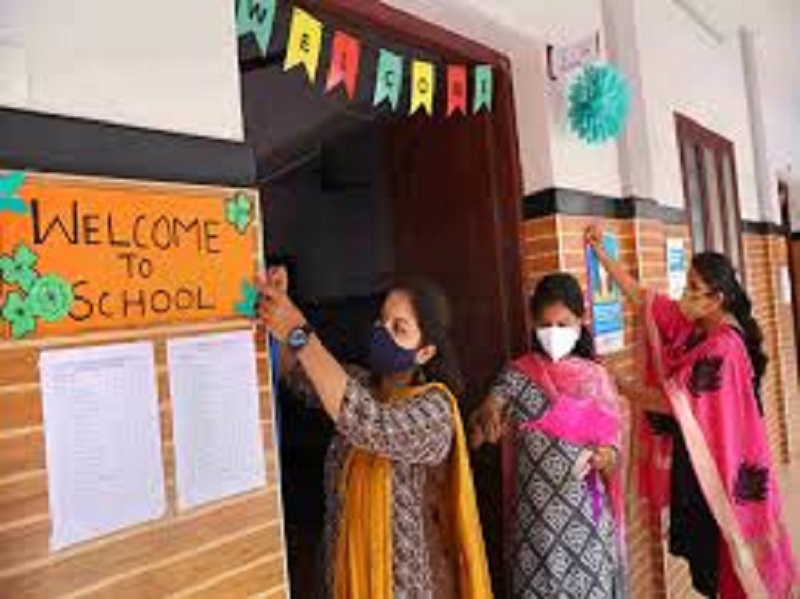
Meanwhile, the department of general education has issued a set of academic guidelines to help teachers handle the new school atmosphere and also to bring maximum students to classrooms. According to the guidelines, the school ambience should be very encouraging for children, students should not be hard pressed for study and there should be activities as per their interests in the initial days.
Departments of Health and Education in Kerala had issued the final guidelines earlier for reopening of schools. To prevent the spread of the virus, schools have to follow the bio-bubble model. Members of a bio-bubble will be together in school and will not mingle with members of another bio-bubble. If one member of a bio-bubble develops Covid symptoms or tests positive, the entire bio-bubble will have to go into quarantine. A bio-bubble comprises one to ten students so that there would be three or four bio-bubbles in a class and each bubble will
have the students coming from the same locality, clarifies a teacher.
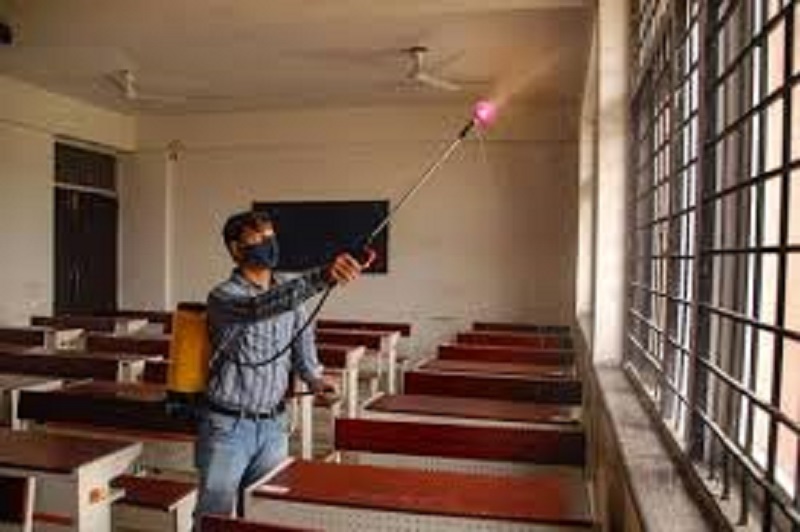
This method can help prevent the spread of the disease on the campuses in case a student gets afflicted, said Kerala’s Health Minister Veena George. In addition, teachers have been entrusted with the task of preventing students’ crowding on school premises, the minister said. As per the guidelines, maximum two students can sit on a bench for classes 1 to 7, each batch will attend classes for three consecutive days a week and digital classes will continue for those who cannot attend school.
The neighbouring state of Tamil Nadu will also reopen schools on November 1 with similar or more stringent measures while Karnataka reopened schools on October 25. Schools in Maharashtra reopened on October 4. Andhra Pradesh schools reopened over two months back on August 16. Telangana reopened schools on September 1.
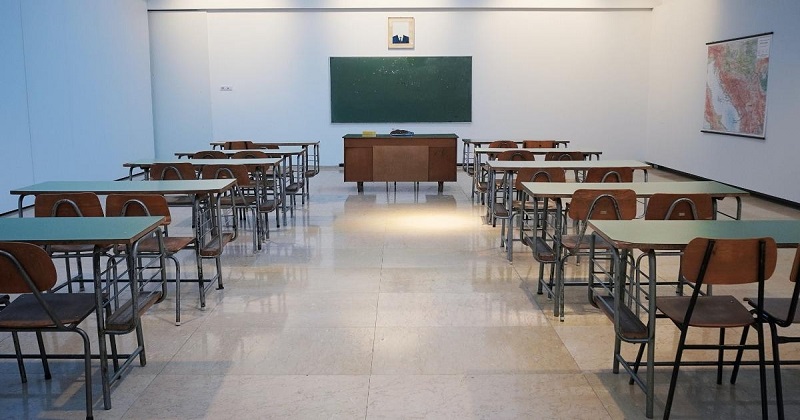
Each state has adopted specific patterns to restart classes from 1 to 12 but common for all is the option of online and offline classes and adherence to Covid protocol. Some states, especially in rural areas, initially recorded poor response from students. Importantly, there have been no reported cases of severe or critical infection among school children in these states.
Schools in the state along with the rest of the country were closed on March 23, 2020 when the nationwide lockdown began. For almost 19 months, the students have been literally kept out of classroom learning. It was a hard time and an unforgettable experience for students, teachers and parents for different reasons.
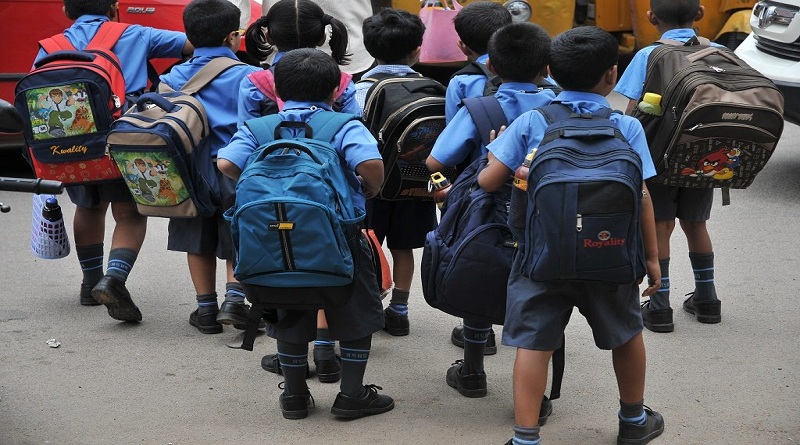
Apart from the difficulties of the transition from classroom study to digital mode, children have been challenged emotionally. Many children have lost their parents, grandparents, uncles or aunts due to the corona virus while many others have seen their parents struggling after losing employment or business in the wake of lockdown.
For the young children, their small but merry world would not come back soon after the reopening of schools. It will take a little while for them to leave behind the baggage and look ahead in the school environment which itself could be hostile or unfriendly in the initial days. Classroom ambience, direct interaction with fellow students and teachers and other usual disruptions during class time could be annoyance for students.

Both students and teachers need some time to get accustomed to classroom teaching and learning. Besides, teachers in particular will have to address the concerns of parents and the problem of maladjustment of students. It is time for inevitable reverse transition- from online to offline classes, from home to school.
BY: KS Rajagopal

Post Your Comments